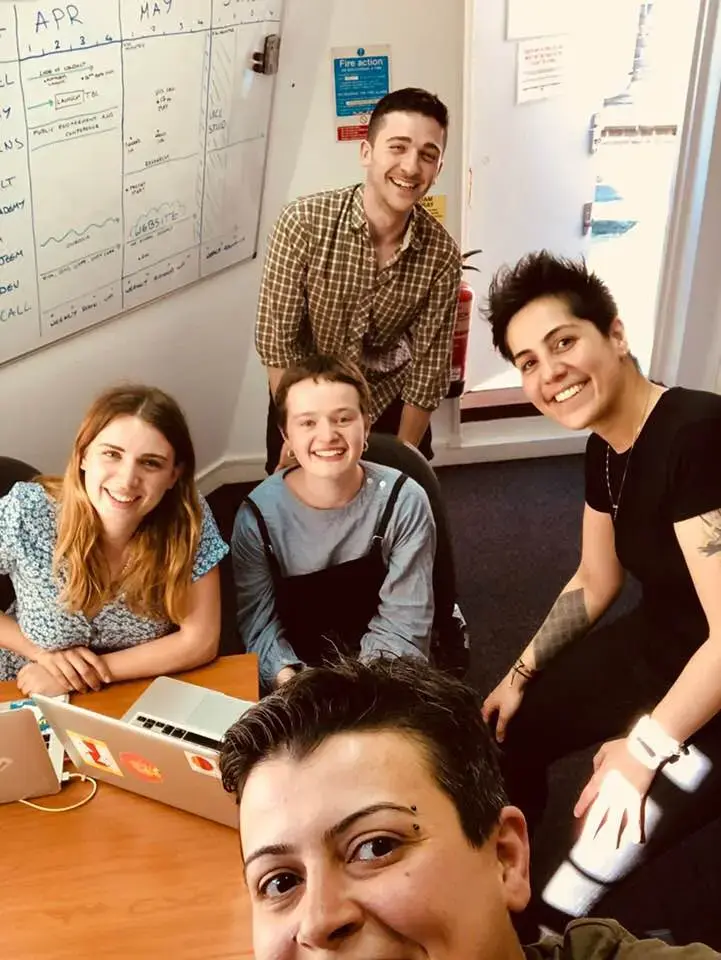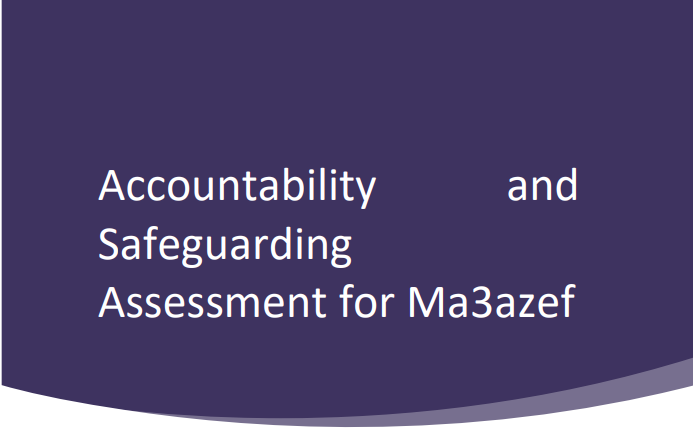Ma3azef Accountability and Safeguarding Assessment
Centre for Transnational Development and Collaboration (CTDC) | 2022
The Ma3azef Accountability and Safeguarding Assessment was conducted by the Centre for Transnational Development and Collaboration (CTDC) in response to a public call for an independent process following allegations of sexual exploitation and harm at a 2019/2020 New Year’s Eve party co-organised by Ma3azef. Commissioned by Ma3azef itself, the assessment critically examines the organisation’s governance, culture, and accountability frameworks through an intersectional feminist and relational lens, and contributes to ongoing discussions on transformative and collective justice within cultural and activist spaces.
🔍 Purpose and Scope
This assessment was never designed as a punitive investigation. Instead, it serves as a feminist process of inquiry, aiming to understand how harm occurred, what conditions enabled it, and how similar violations can be prevented in the future. It engages with organisational, relational, and sectoral dynamics to explore accountability as a continuous and collective process. The report reflects on how institutions handle harm—not only in technical terms but also ethically, emotionally, and structurally.
🧩 Structure and Content
The report combines conceptual analysis, consultations, and internal reviews across four main pillars:
- General Findings: Interrogates collective accountability, evasion of responsibility, moral absolutism, and the dangers of sensationalist media coverage.
- Ma3azef-Specific Findings: Evaluates internal weaknesses, including lack of safeguarding protocols, informal HR practices, and blurred lines of responsibility.
- Methodology: Employs relational, gap, and process analysis informed by feminist philosophy, organisational sociology, and survivor-centred approaches.
- Recommendations: Provides detailed guidance for Ma3azef and the wider sector on governance, board structure, internal policies, vetting, HR systems, and safeguarding mechanisms.
Each section offers granular insights supported by findings and step-by-step recommendations for organisational development, crisis response, and ethical leadership.
🌟 Strengths and Contributions
- Transformative Justice Approach: Moves beyond punishment to focus on healing, structural change, and survivor-centered care.
- Sector-Wide Relevance: Addresses common gaps in safeguarding and governance across cultural institutions in Arabic-speaking contexts.
- Feminist Reflexivity: Acknowledges the emotional toll of accountability work and offers solidarity to survivors and practitioners alike.
- Methodological Depth: Combines theoretical rigour with practical, actionable tools grounded in CTDC’s safeguarding and justice frameworks.
👉 Access the full report here and explore how institutions can build cultures of care, accountability, and collective responsibility.
📎 Download the full assessment from CTDC. 👇
Reach to Us
Have questions or want to collaborate? We'd love to hear from you.




